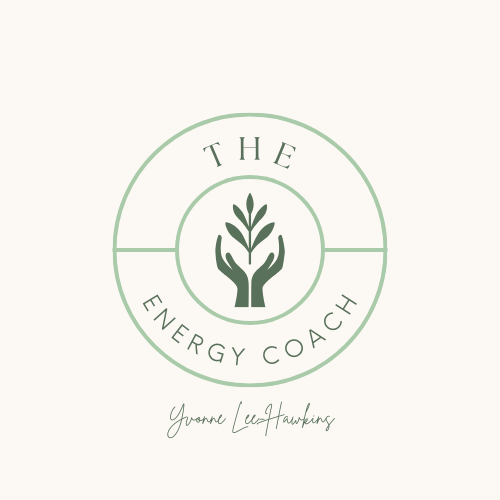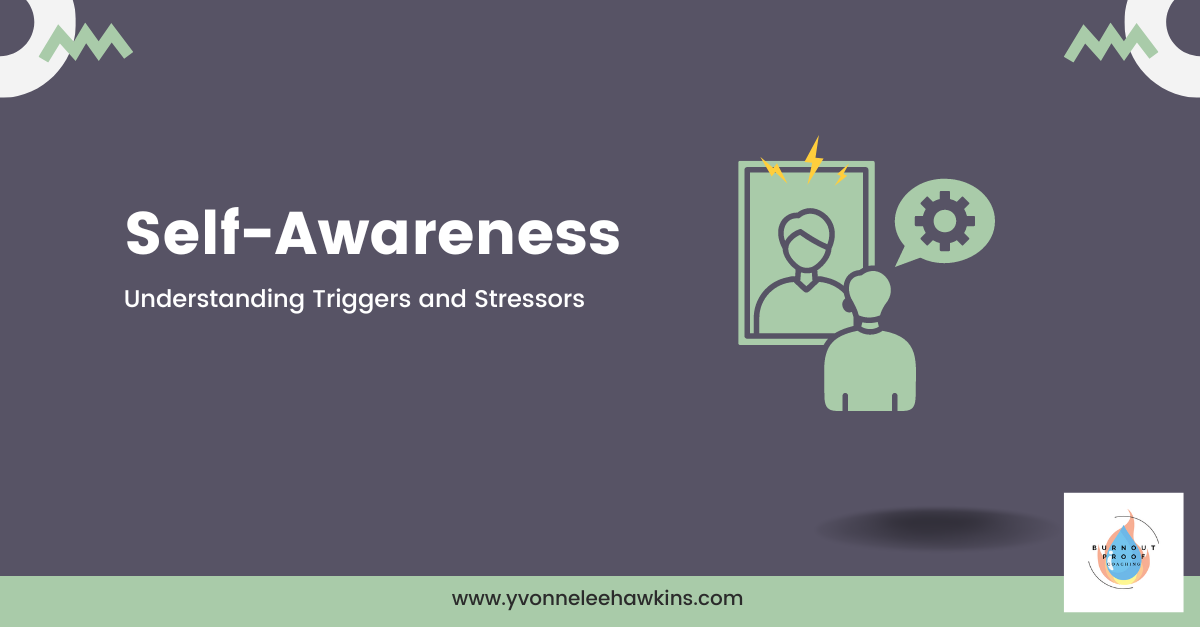A 2024
Forbes article called Self-awareness the skill that elevates
leadership. Self-awareness is a key to personal growth and emotional
intelligence. It means having a deep understanding of our own feelings,
strengths, weaknesses, values, and motivations. Central to self-awareness is
knowing what triggers our emotional reactions and identifying our stressors.
When we understand these things, we can manage them better, leading to improved
mental health, healthier relationships, and success in both our personal and
professional life. Managing our triggers and stressors not only makes us better
leaders but can also help prevent burnout. Let’s discuss how!
Why Self-Awareness
Matters
Self-awareness allows us to objectively look at our behavior
and reactions. It helps us step outside ourselves and view our actions,
thoughts, and emotions without bias. This skill is essential for better
decision-making, healthier relationships, and personal growth. When we can see
our emotions clearly, we are less likely to blame others for our reactions.
Author and described father of self-help, Wayne Dyer, used
to use an orange as an example. He said, “when you squeeze an orange, what
comes out of it?” You get orange juice.
“What if someone else squeezes it? What
if you use a press or run over it with a car?
Still orange juice. This is because that’s what’s inside. Even if you
press it harder or crush it, you’ll still get orange juice. He compared this to
our own emotions: when life “squeezes” us (when we’re stressed), what
comes out is what’s already inside us. If we yell or get angry under stress,
it’s because that anger was already inside us. On the other hand, if we stay
calm and look for solutions, that’s what’s inside us.
By becoming more self-aware, we can learn to manage our
emotional responses better. For example, if we realize we get upset when
someone criticizes us, we can learn to pause, think, and choose a more positive
way to respond. We don’t have to internalize the criticism. We don’t have to defend ourselves. We just have to pause and look at it
objectively. Maybe there’s something there, maybe not. This approach leads to
better decision-making since reacting out of anger often results in poor
choices.
Understanding our emotional triggers also helps us
communicate more effectively. When we know ourselves, we can be more empathetic
towards others, which reduces conflicts and strengthens our relationships. For
example, if someone enjoys teasing you to get a reaction, what happens when you
no longer respond? Usually, they lose interest. It’s like pouring water on a
fire—the teasing fizzles out.
Self-awareness is also necessary for a growth mindset. It
helps us identify areas where we can improve and motivates us to take steps to
become better. If you think you’re already perfect, what’s left to work on?
What Are Emotional
Triggers?
Emotional triggers are events, people, situations, or
memories that cause a strong emotional reaction. These reactions can be
positive or negative and often happen without us thinking about them. They just
happen automatically. To manage our emotions and reactions effectively, we must
be able to find and understand these triggers.
Identifying Triggers: Start by reflecting on past
situations where you had a strong emotional reaction. What was happening? It
can be helpful to keep a journal of your daily experiences and emotions. Over
time, you may notice patterns in what triggers you. You can also ask trusted
friends or family for feedback; sometimes, they can see our triggers more
clearly than we can.
Types of Triggers: Triggers can be environmental,
interpersonal, or internal.
Environmental triggers are external factors like places,
sounds, or smells. For example, walking into your childhood home might trigger
you to behave like you did when you lived there. Environmental triggers are
powerful components in habit loops. Habit expert James Clear describes it like this.
“Environment is the invisible hand that shapes human behavior.” He goes on to say that when it comes to
habit, environment will even overpower our motivation, talent, and effort. If you and your spouse have a habit of having
hard conversations at the kitchen table that often erupt into fights, it might
be worth taking the next serious conversation to a café, a park, or some other
neutral environment.
Another trigger is an interpersonal trigger. These involve interactions with others, such
as certain behaviors, words, or tones of voice. Family members often trigger us
this way. For example, if a family member says something in a particular tone,
it might set you off. Almost everyone
can relate in one way or another. Recently my oldest teenager was learning to
drive. I realized quickly that I was not the best to teach her. Any suggestion
or correction that came from me was immediately discounted and she got agitated
and upset, despite us having a close and loving relationship. I learned that
she did just fine when she was able to practice with someone, she considered
more neutral.
One of the most powerful and common triggers is another type
of trigger. Internal triggers are thoughts or memories tied to past
experiences. You can’t avoid your inner dialogue. For instance, you might feel
defensive or down on yourself when you receive criticism. When you get upset or
frustrated, it can often be traced to an internal trigger. The bad news is that these can be hard if not
impossible to change, the good news is that just by knowing you are triggered,
you can change your response. Over time,
the internal trigger may decrease or disappear.
Managing Triggers
The first step in managing triggers is recognizing them.
This awareness creates a pause between the trigger and your reaction.
Techniques like mindfulness meditation, deep breathing, and progressive muscle
relaxation can help you stay calm when faced with a trigger. When you become
aware of a trigger, you can challenge and reframe negative thoughts, shifting
your perspective and reducing the emotional impact.
Stressors are external pressures or demands that cause
stress. Like triggers, they affect people differently. Identifying your
stressors is important to develop effective coping strategies. You can find stressors by regularly assessing
your stress levels and figuring out what is causing the stress. Don’t overthink it. I often ask my clients to
rate their stress on a scale of 1-10. Whatever comes to you naturally is the
right answer.
You can use tools like journaling to create a stress
inventory or a simple checklist to pinpoint what’s bothering you. Pay attention
to your physical and emotional responses. Common signs of stress include a
faster heartbeat, headaches, muscle tension, irritability, and anxiety. If it’s
challenging to identify stressors on your own, a therapist or coach can help.
When it comes to types, there are four main types of
stressors:
1.
Acute stressors are short-term events,
like a job interview or a minor accident. These stressors are tied to specific
events and usually pass once the event is over.
2.
Chronic stressors are ongoing pressures,
such as a high-stress job or financial problems. These stressors are continuous
and can be more challenging to manage and are often a contributor to burnout
without regular intervention.
3.
Environmental stressors include factors
like noise, pollution, or crowded living conditions. If you live in a busy
city, constant noise might make it hard to relax. Toxic work cultures would also be considered
an environmental stressor that can also be linked to burnout.
4.
Social stressors involve relationships
and social interactions. Conflicts with friends, family, or feelings of
isolation can cause stress. While this
one is not usually tied to burnout on it’s own, it becomes a contributor in the
presence of any of the other aforementioned stressors.
Managing Stressors
To manage stressors effectively, try some of these effective
strategies:
Time Management: Reduce stress by prioritizing tasks,
delegating when possible, and setting realistic goals. This approach can help manage
deadlines and heavy workloads. I recently wrote about Time
Management, How
to Prioritize, and Delegation
in previous articles (you can click on the links if you missed them).
Healthy Lifestyle: Regular exercise, a balanced diet,
enough sleep, and daily sunlight are vital for managing stress. These habits
improve overall well-being and make you more resilient to stress. I often
compare us to house plants. What we need
is simple. Getting it is not.
A Support Network: Surround yourself with supportive
friends, family, and colleagues. They can provide emotional support and
practical help when dealing with stress.
Recent media has shared stories about us facing a loneliness epidemic,
and one piece of research
cited loneliness as a major risk factor for cancer. Having the support of friends and loved ones
can be a game changer.
Seek Professional Help: Sometimes, stress can be too much to
handle alone. Therapists, counselors, and coaches can offer strategies to
manage stress and address underlying issues.
The benefit of seeing a professional is that they have no personal stake
and can help you get an objective view.
They are trained in solving these specific problems and will have
insights gathered from a variety of clients they work with. But, finding the right therapist, counselor,
or coach is important. If you don’t have a good rapport, find another. I’ve personally worked with many great
professionals, and a few that were not.
It does take a bit of matchmaking to find the one that works well with you. You can find resources online, through your
company’s Employee Assistance Program, by asking friends for referrals, or even
on LinkedIn.
So now what? Here are
easy and actionable steps you can take to increase self-awareness and manage triggers
and stressors.
Actions you can take:
·
Keep a Journal and reflect: Write
down your emotions and reactions daily. Over time, look for patterns to find
what triggers you and causes stress. Spend a few minutes each day reflecting on
your emotional responses. Ask yourself, “Why did I feel that way?” “Could
there be any other reason I reacted this way?” This helps you understand your
triggers.
·
Practice Mindfulness and Challenge Negative
Thoughts: Try deep breathing or meditation to create a pause between a
trigger and your reaction. This helps you respond thoughtfully instead of
reacting automatically. When you notice a trigger, try to reframe it. For
example, if someone criticizes you, remind yourself that their opinion doesn’t
define your worth. I’ve also always loved the quote” Don’t take criticism from
someone you wouldn’t go to for advice.” Not everyone’s opinion of you matters.
·
Take Care of Yourself: Exercise
regularly, eat healthily, get enough sleep and sunshine to build resilience to
stressors.
·
Set Boundaries: Learn to say no to
things that overwhelm you, or that you don’t want to do. It’s okay to
prioritize your well-being.
·
Talk to Someone: Share your
feelings with a friend, family member, or professional. Sometimes, talking it
out can provide clarity and support.
Yvonne Lee-Hawkins, IPHM, is a holistic wellness coach,
stress strategist, and writer. When she is not working, she loves to go on
nature adventures with her family, in the Pacific Northwest where they call
home. You can find out more on her website, or follow her
on LinkedIn,
Medium, or Instagram.
If you want some help with goal setting, Burnout recovery
or general wellness, book a call here.

